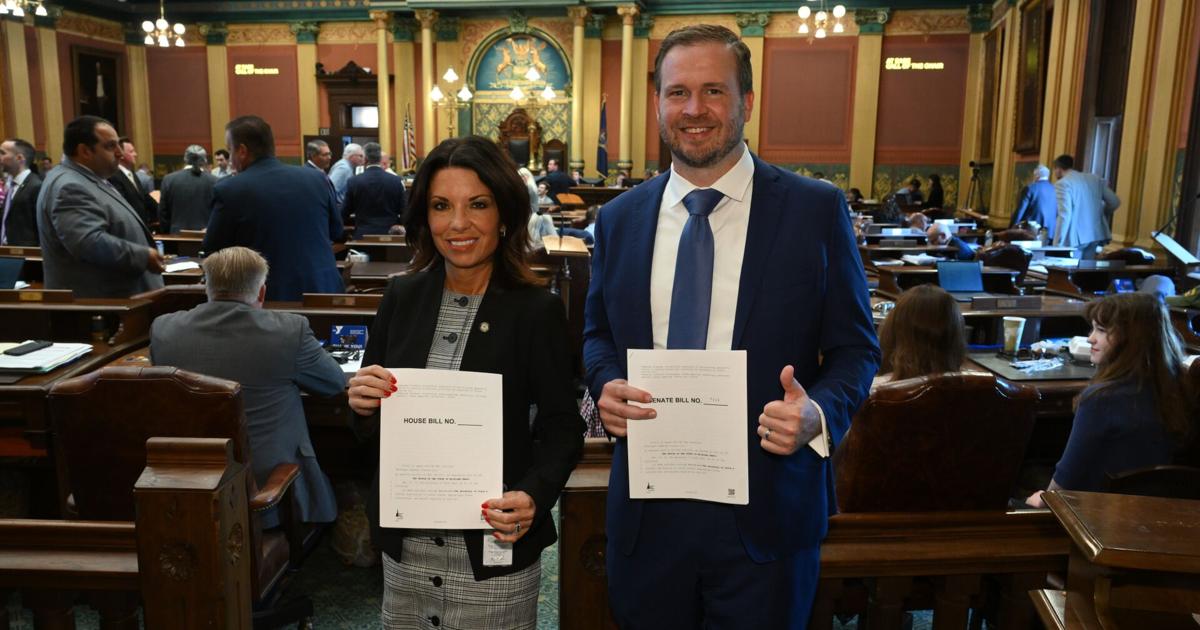Michigan Lawmakers Target Campaign Finance Loophole Involving Secretary of State

Michigan's campaign finance landscape is facing scrutiny as state lawmakers move to address a loophole that recently came to light in a case involving Secretary of State Jocelyn Benson. State Representative Angela Rigas and State Senator Jonathan Lindsey have jointly introduced bills designed to close this perceived vulnerability within the state's finance laws.
The impetus for these legislative efforts stems from a recent case that exposed a potential avenue for circumvention of campaign contribution limits. While details of the specific case remain sensitive, it underscored how the current regulations could be interpreted to allow for indirect contributions that effectively bypass established restrictions. This has raised concerns about fairness and transparency in Michigan's elections.
Representative Rigas emphasized the importance of swift action, stating, "Our campaign finance laws are meant to ensure a level playing field and prevent undue influence in our elections. This loophole, if left unaddressed, could undermine the integrity of the process. We need to act decisively to close it."
Senator Lindsey echoed this sentiment, adding, "The public deserves to know that their elections are fair and that all candidates are subject to the same rules. These bills are a necessary step to reinforce that trust and safeguard the democratic process in Michigan."
Key Provisions of the Proposed Legislation:
- Narrowing the Definition of 'Contribution': The bills seek to broaden the definition of what constitutes a campaign contribution, encompassing indirect financial support that currently falls outside the scope of existing regulations.
- Increased Scrutiny of Third-Party Spending: The legislation proposes enhanced oversight of independent expenditure groups and other third parties engaged in election-related activities to ensure compliance with contribution limits.
- Strengthened Enforcement Mechanisms: The bills aim to equip the Michigan Department of State with greater authority to investigate and prosecute violations of campaign finance laws, including those involving this newly identified loophole.
Potential Impact and Challenges:
If passed, these bills could have a significant impact on how campaigns are financed in Michigan. They are likely to face scrutiny from political organizations and individuals who have benefited from the existing loophole. Debate is expected to center on the potential for the legislation to stifle free speech and limit legitimate political activity. Supporters, however, maintain that the bills are essential to maintaining the integrity of the electoral process.
The bills are currently under review by legislative committees and are expected to be subject to public hearings. The outcome remains uncertain, but the introduction of these measures signals a growing awareness of the need for campaign finance reform in Michigan.
Stay informed about the latest developments in Michigan politics. This is a developing story, and we will continue to provide updates as they become available.






